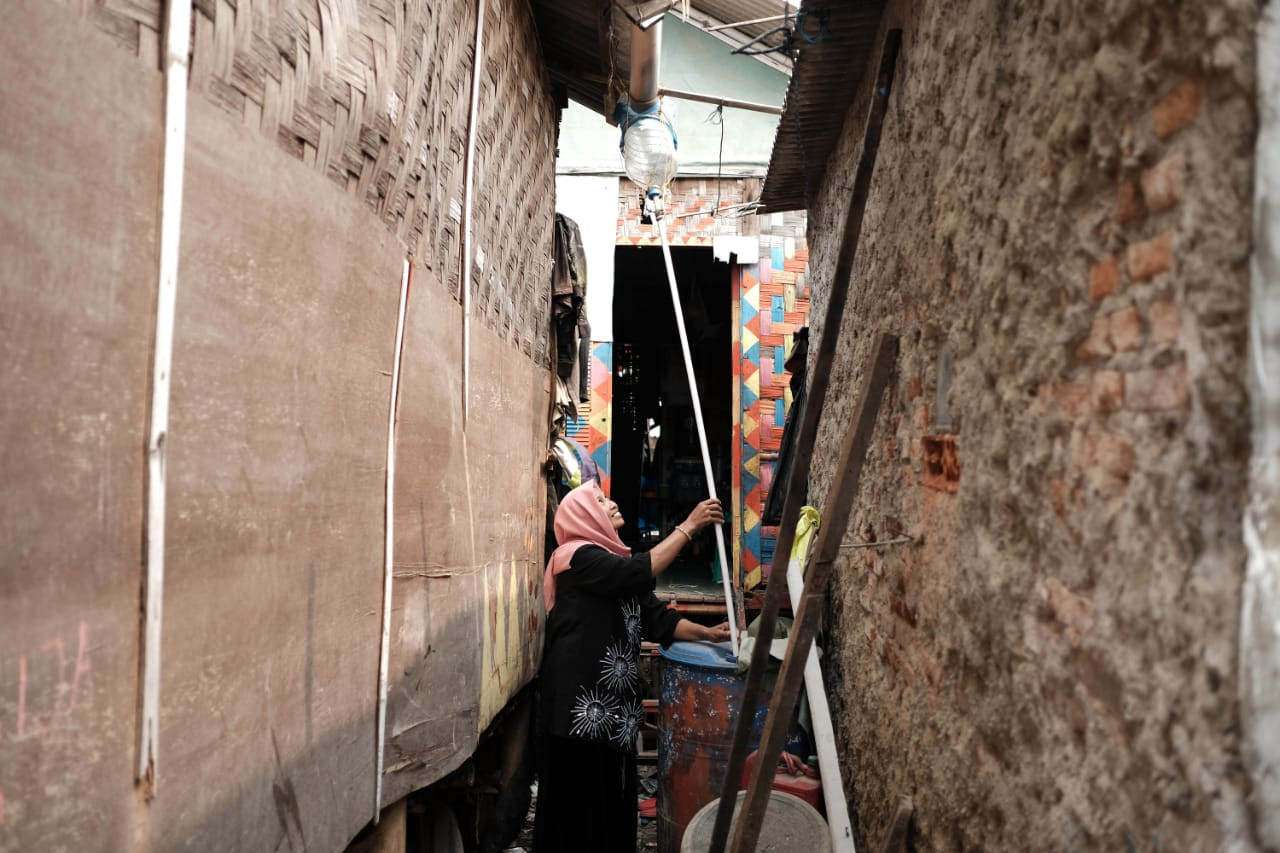Popular Reads
Top Results
Can't find what you're looking for?
View all search resultsPopular Reads
Top Results
Can't find what you're looking for?
View all search resultsWater Law: Govt must examine its own capacity
Failure to deal comprehensively with this issue suggests a cursory approach in responding to constant accusations of the state being too accommodative of business interests.
Change text size
Gift Premium Articles
to Anyone
T
he recently passed Water Law has reignited the classic debate about the private sector’s business interests versus the public good. The revised law is lauded for filling in the legal vacuum since the Constitutional Court annulled the previous law, yet critics say the remaining legal grounds for water management by private businesses could encourage water commercialization, thus still violating the public’s right to clean water.
The court seemed to have favored plaintiffs who had demanded the law adhere to the widely cited Article 33 of the 1945 Constitution: “the land, the waters and the natural resources within shall be under the powers of the state and shall be used to the greatest benefit of the people”.
Article 51 of the new law clearly states that commercial use of domestic water resources must be subject to approval from stakeholders in the surrounding area. Further, Article 50 stipulates that access to the drinking water procurement system should be limited to state-owned enterprises, regional government-owned enterprises or village administration-owned enterprises; however it excludes bottled water companies, which are deemed to be producing for “practicality and lifestyle”.
The government can claim that the law helps create a business-friendly environment while protecting public access to clean water.
Yet the changes have not clearly addressed the deeply rooted question: does the government have the ability to manage water for the public good?
Failure to deal comprehensively with this issue suggests a cursory approach in responding to constant accusations of the state being too accommodative of business interests.
Whether the government can manage water for all reminds me of my childhood in a small regency on Lombok Island, West Nusa Tenggara, in the 1990s. My parents always made my sister and I wake up very early on Sunday mornings and immediately shower, while ensuring that a 1-cubic-meter tub and two other buckets in the bathroom were full of water. The reason they did not give us more time to enjoy our peaceful weekend mornings was because the water supply from the local government-owned enterprise PDAM would be disrupted later in the day.
My parents had to stay up until very late almost every night just to fill the tub and buckets, which could take hours as the tap water flowed weakly. They did all that just to ensure we could have enough water for the day.
I also remember walking past the PDAM office near my childhood house, seeing an old, deserted-looking building and thinking: no wonder water supply in my house is so poor.
That memory sticks in my mind to this day. I will always fill a water tub or bucket any time I see one although I now live in Jakarta, which relies heavily on undisrupted ground water supply. This probably is unimaginable for most of my fellow Jakartans who have showers and sit-on water closets with undisrupted water supply in their bathrooms. But in other places outside Jakarta, the struggle is still real.
My aunt in Denpasar, Bali’s internationally acclaimed tourist destination, still does what my family did in the 1990s.
My family story highlights the needs for the government to think about a more comprehensive solution for public water management. It is not only about the fight between private sector interest and the public but how the government improves its ability to serve its own people.
The Asian Development Bank’s 2016 “Indonesia, Country Water Assessment” report stated that water supply by PDAMs serves generally 55 percent of urban areas. However, they have been unable to keep up with the pace of urban growth and the water system supply depreciation, with the result that PDAM coverage is only 30 to 40 percent of its service area in 2011.
The main problem with the PDAMs is not the availability of water, the report said, but rather issues related to the management and “health” of the water firms, debt restructuring and adoption of cost recovery tariffs, and the lack of a sound public–private partnership framework to mobilize the huge investments needed for the development and maintenance of appropriate infrastructure and distribution network.
The government should therefore focus on greatly improving the human resources and infrastructure of PDAMs across the country to enable better provision of sustainable and reliable water. The authorities can make knowledge transfer mandatory by private businesses for local PDAMs, to upskill the officials and develop more advanced technology within the local public firms. Such a requirement has become a normal practice in many business-to-business operations involving foreign companies including in Indonesia.
The controversy around the new Water Law is an opportunity to find an out-of-the-box and comprehensive solution for domestic water management, not only at the downstream level but all the way to the upstream, literally.
The government should support water conservation efforts to provide a sustainable water supply, protect forests and rivers where water is sourced and flows. Harsh punishments for illegal loggers, land and forest arsonists, as well as river polluters must be enforced to ensure water sustainability for future generations.
Now is the time for the government to shift some of its attention to “the land, the water” after heavily focusing on “the natural resources within”. Certainly gold, oil and coal are important for many people’s livelihoods as well as state revenue, but who on earth can live without water at all for just a day?










